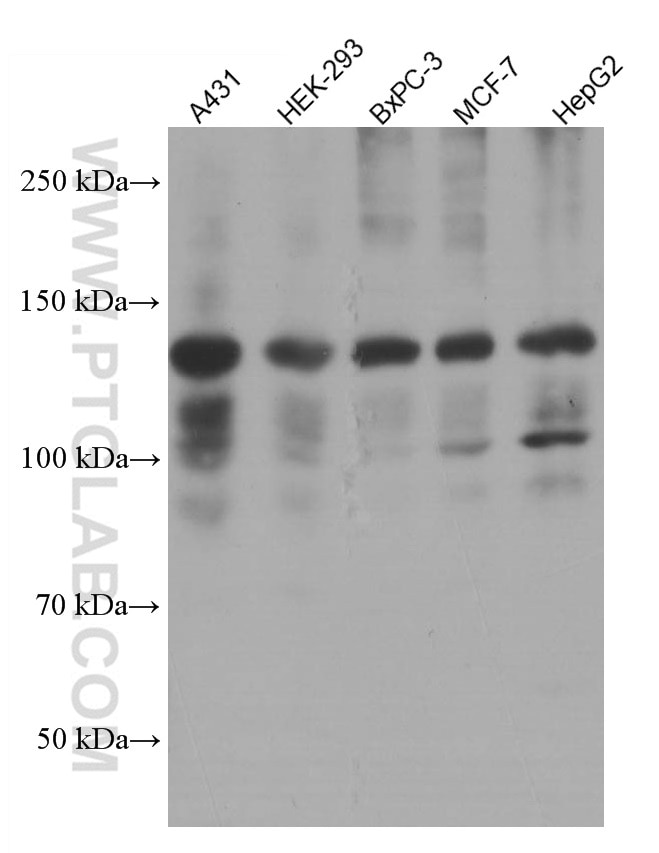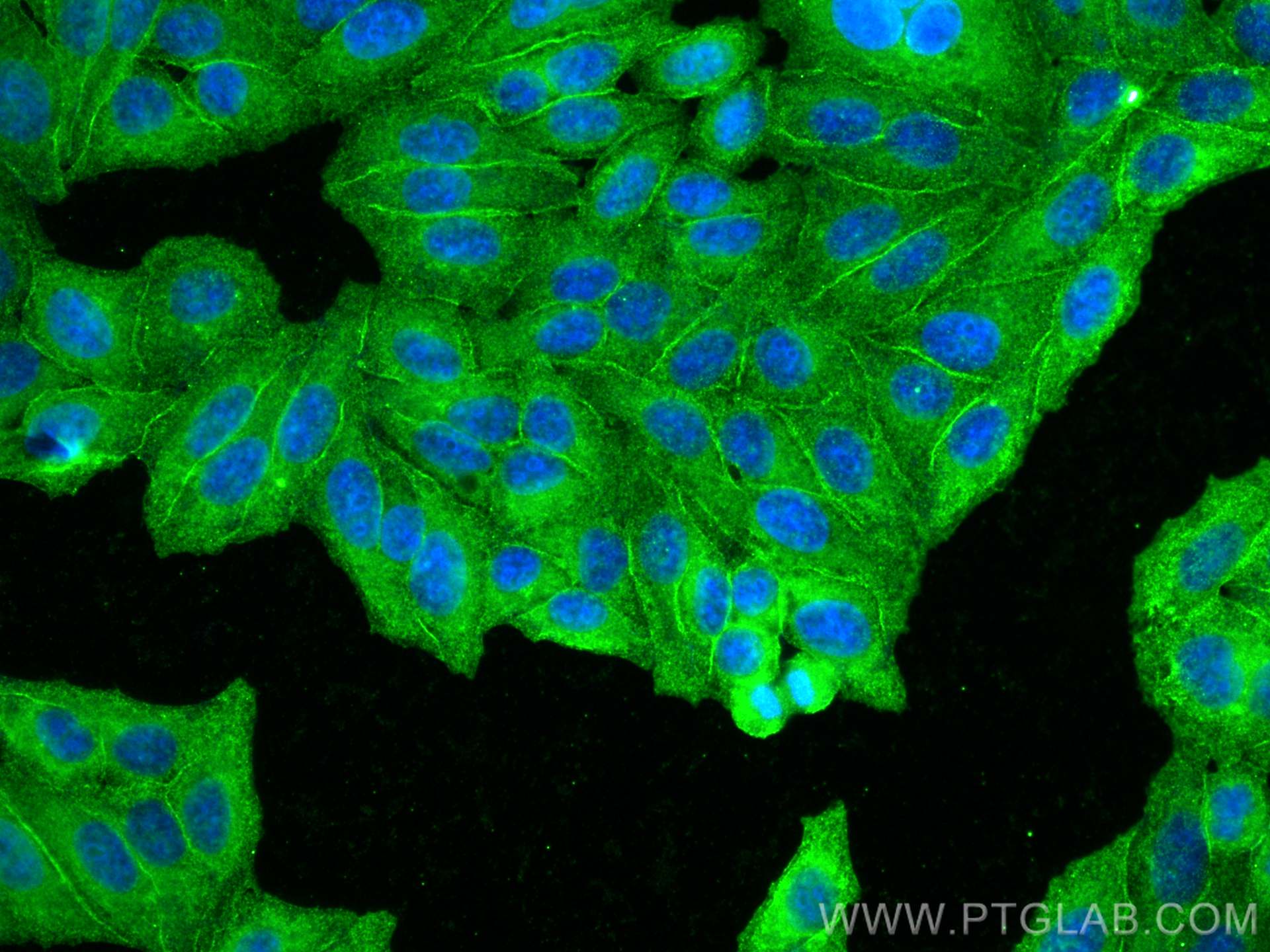Tested Applications
| Positive WB detected in | A431 cells, HEK-293 cells, BxPC-3 cells, MCF-7 cells, HepG2 cells |
| Positive IF/ICC detected in | HepG2 cells |
Recommended dilution
| Application | Dilution |
|---|---|
| Western Blot (WB) | WB : 1:5000-1:50000 |
| Immunofluorescence (IF)/ICC | IF/ICC : 1:200-1:800 |
| It is recommended that this reagent should be titrated in each testing system to obtain optimal results. | |
| Sample-dependent, Check data in validation data gallery. | |
Published Applications
| KD/KO | See 3 publications below |
| WB | See 11 publications below |
| IHC | See 1 publications below |
Product Information
66736-1-Ig targets EPHA2 in WB, IHC, IF/ICC, ELISA applications and shows reactivity with human samples.
| Tested Reactivity | human |
| Cited Reactivity | human, mouse |
| Host / Isotype | Mouse / IgG1 |
| Class | Monoclonal |
| Type | Antibody |
| Immunogen |
CatNo: Ag22566 Product name: Recombinant human EPHA2 protein Source: e coli.-derived, PET28a Tag: 6*His Domain: 271-535 aa of BC037166 Sequence: DACQACSPGFFKFEASESPCLECPEHTLPSPEGATSCECEEGFFRAPQDPASMPCTRPPSAPHYLTAVGMGAKVELRWTPPQDSGGREDIVYSVTCEQCWPESGECGPCEASVRYSEPPHGLTRTSVTVSDLEPHMNYTFTVEARNGVSGLVTSRSFRTASVSINQTEPPKVRLEGRSTTSLSVSWSIPPPQQSRVWKYEVTYRKKGDSNSYNVRRTEGFSVTLDDLAPDTTYLVQVQALTQEGQGAGSKVHEFQTLSPEGSGNL Predict reactive species |
| Full Name | EPH receptor A2 |
| Calculated Molecular Weight | 976 aa, 108 kDa |
| Observed Molecular Weight | 130 kDa |
| GenBank Accession Number | BC037166 |
| Gene Symbol | EPHA2 |
| Gene ID (NCBI) | 1969 |
| RRID | AB_2882086 |
| Conjugate | Unconjugated |
| Form | Liquid |
| Purification Method | Protein G purification |
| UNIPROT ID | P29317 |
| Storage Buffer | PBS with 0.02% sodium azide and 50% glycerol, pH 7.3. |
| Storage Conditions | Store at -20°C. Stable for one year after shipment. Aliquoting is unnecessary for -20oC storage. 20ul sizes contain 0.1% BSA. |
Background Information
EPHA2 (Ephrin type-A receptor 2) belongs to the receptor tyrosine kinase (RTK) family, with 16 known receptors and 9 known membrane-bound ligands in all species. Based on the extracellular domain sequence homology, structure, and binding affinity, Eph receptors and their ephrin ligands can be divided into A and B subtypes (PMID: 33962882). EPHA2 contains a conserved N-terminal ligand-bound extracellular domain, a transmembrane domain, and a conserved tyrosine kinase domain (PMID: 8070404).
Protocols
| Product Specific Protocols | |
|---|---|
| IF protocol for EPHA2 antibody 66736-1-Ig | Download protocol |
| WB protocol for EPHA2 antibody 66736-1-Ig | Download protocol |
| Standard Protocols | |
|---|---|
| Click here to view our Standard Protocols |
Publications
| Species | Application | Title |
|---|---|---|
Mol Ther Nucleic Acids EFNA4 promotes cell proliferation and tumor metastasis in hepatocellular carcinoma through a PIK3R2/GSK3β/β-catenin positive feedback loop. | ||
J Oncol EphA2 Promotes the Development of Cervical Cancer through the CXCL11/PD-L1 Pathway
| ||
J Alzheimers Dis Metabolic Reprogramming of Microglia Enhances Proinflammatory Cytokine Release through EphA2/p38 MAPK Pathway in Alzheimer's Disease
| ||
Chem Biol Interact 2-Methoxy-5((3,4,5-trimethosyphenyl)seleninyl) phenol (SQ) inhibits cancer cell metastasis behavior of TNBC via suppressing EMT and VEGF. | ||
Arch Biochem Biophys EphA2 inhibits SRA01/04 cells apoptosis by suppressing autophagy via activating PI3K/Akt/mTOR pathway.
|






